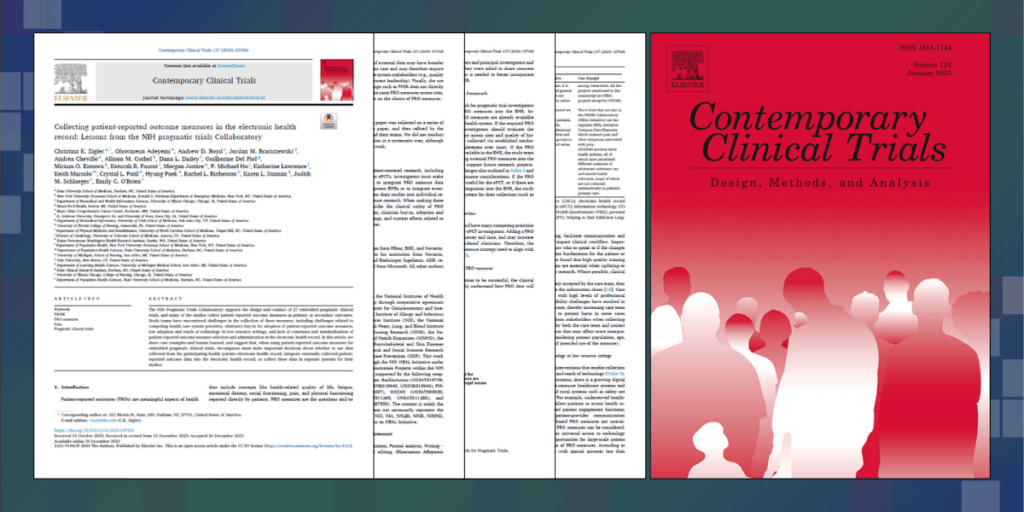 In a new article from the NIH Pragmatic Trials Collaboratory, investigators from 6 of the program’s pragmatic clinical trials share case examples of the challenges they encountered in collecting patient-reported outcomes (PROs) in their trials and the strategies they used to address them.
In a new article from the NIH Pragmatic Trials Collaboratory, investigators from 6 of the program’s pragmatic clinical trials share case examples of the challenges they encountered in collecting patient-reported outcomes (PROs) in their trials and the strategies they used to address them.
The article was published this week in Contemporary Clinical Trials.
PRO measures reflect meaningful aspects of health and provide information about outcomes that are experienced uniquely by the patient, such as pain intensity, fatigue, and satisfaction with social roles. The challenges described by the authors include:
- competing healthcare system priorities
- clinician buy-in for adoption of PRO measures
- low adoption and reach of technology in low-resource settings
- lack of consensus and standardization of PRO selection and administration in the electronic health record
The authors suggest that, given the multiple barriers, study teams may need to use separate data collection systems or integrate externally collected PRO data into the electronic health record.
“When using patient-reported outcome measures for embedded pragmatic clinical trials investigators must make important decisions about whether to use data collected from the participating health system’s electronic health record, integrate externally collected patient-reported outcome data into the electronic health record, or collect these data in separate systems for their studies.”
Learn more about the NIH Collaboratory Trials.
This work was a collaboration between the Electronic Health Records Core and the Patient-Centered Outcomes Core of the NIH Pragmatic Trials Collaboratory.


